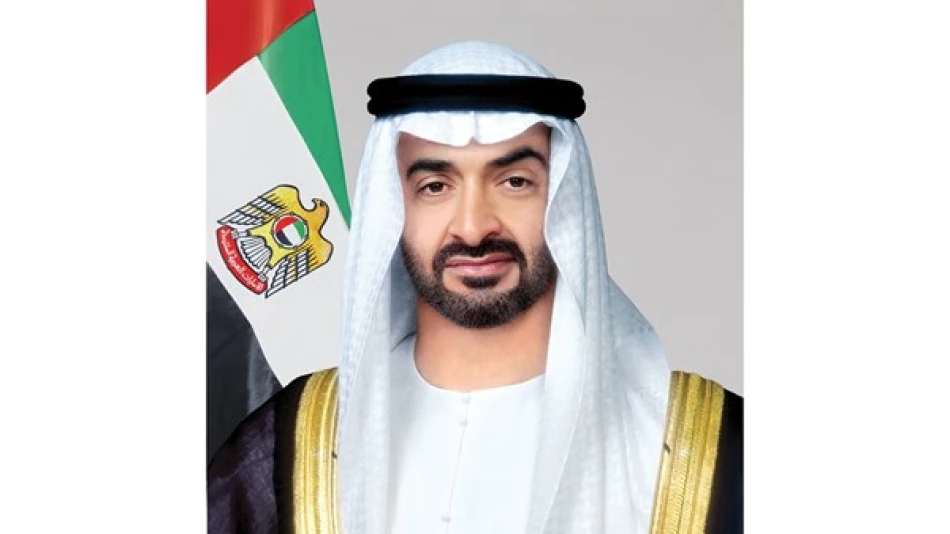
UAE President and Hungarian Leader Discuss Enhancing Bilateral Cooperation in Budapest
UAE-Hungary Partnership Deepens as Sheikh Mohamed bin Zayed Concludes Strategic Budapest Visit
UAE President Sheikh Mohamed bin Zayed Al Nahyan wrapped up a pivotal official visit to Hungary, meeting with President Tamás Sulyok to strengthen bilateral ties across energy, trade, and investment sectors. The high-level diplomatic engagement signals the UAE's continued push to diversify its European partnerships beyond traditional Western allies, while Hungary seeks to balance its energy security through Middle Eastern partnerships.
Strategic Cooperation Takes Center Stage
The discussions between the two leaders focused heavily on expanding cooperation in renewable energy, economic development, and cultural exchange. This emphasis on renewable energy collaboration is particularly significant given Hungary's ongoing efforts to reduce its dependence on Russian energy sources following the Ukraine conflict.
President Sulyok expressed optimism that the visit would "enhance bilateral relations and expand areas of mutual cooperation," highlighting the mutual benefits both nations see in strengthening their partnership. The meeting, held at the Hungarian Parliament, underscored the formal diplomatic weight both countries are placing on this relationship.
UAE's European Strategy in Focus
Sheikh Mohamed bin Zayed's visit to Hungary reflects the UAE's broader strategy of building diverse partnerships across Europe, particularly with nations seeking energy security alternatives. Unlike the UAE's relationships with major Western European powers like the UK or Germany, the Hungary partnership offers unique opportunities in Central Europe's growing markets.
The UAE leader emphasized that relations between the two countries are built on "mutual respect and joint work for the progress and prosperity of both nations," signaling a long-term strategic approach rather than transactional engagement.
Investment and Trade Implications
For investors and businesses, this deepening relationship opens new corridors for UAE capital in Central Europe, while providing Hungarian companies with access to Gulf markets and financing. Hungary's position as a manufacturing hub for European automotive and technology companies makes it an attractive partner for UAE sovereign wealth funds seeking diversified European exposure.
The renewable energy focus also positions both countries to benefit from the European Union's green transition funding, potentially creating joint ventures in solar, wind, and energy storage technologies.
Regional Context and Timing
The visit comes at a crucial time for Hungary, which has faced criticism from EU partners over its continued energy ties with Russia. By strengthening relationships with Gulf states like the UAE, Hungary is demonstrating its commitment to diversifying energy sources while maintaining its strategic autonomy within the EU framework.
This mirrors similar strategies employed by other European nations, though Hungary's approach is more pronounced given its geographic position and energy vulnerabilities. The UAE, meanwhile, continues to position itself as a reliable partner for European energy security, leveraging its stable political environment and growing renewable energy capabilities.
Cultural Diplomacy and Soft Power
The exchange of symbolic gifts representing both nations' cultural heritage highlights the soft power dimension of this partnership. Such cultural diplomacy often precedes deeper economic integration, suggesting that both countries view this relationship as having long-term strategic value beyond immediate economic benefits.
Sheikh Mohamed bin Zayed's inscription in the visitors' book, expressing satisfaction with the visit and commitment to continued cooperation, indicates that this partnership will likely see concrete developments in the coming months. The emphasis on "shared development" suggests potential joint initiatives in third markets, particularly in Africa and Asia where both countries have growing interests.
Most Viewed News

 Layla Al Mansoori
Layla Al Mansoori






